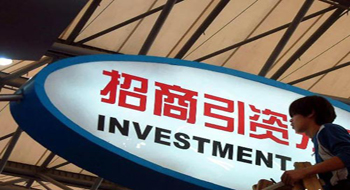(单词翻译:单击)
Foreign direct investment to China has fallen at the sharpest rate since the height of the financial crisis, as Beijing targets a widening array of global companies in the country for alleged price-fixing and monopolistic behaviour.
中国的外商直接投资(FDI)出现金融危机最严重时期以来的最大幅度下降。近期北京方面将越来越多在华经营的跨国企业列为调查对象,指控它们存在价格操纵和垄断行为。
Investment to China from abroad reached $7.2bn in August, the lowest monthly total since July 2010, according to Chinese Ministry of Commerce figures released on Tuesday and FT calculations based on data from the National Bureau of Statistics.
根据中国商务部周二发布的数据,以及英国《金融时报》依据中国国家统计局数据进行的计算,8月境外对中国的投资达到72亿美元,是自2010年7月以来最低的月度FDI总额。

That was 14 per cent lower than a year earlier, following a 17 per cent drop in July from the same month a year earlier.
这比去年同期低14%,而7月份的同比跌幅达到17%。
That marked the first time that FDI has dropped by more than 10 per cent in two consecutive months since 2009, in the midst of the global financial crisis.
这标志着自2009年全球金融危机以来外商直接投资首次连续两个月下降10%以上。
Declining interest in China comes as the world’s second-largest economy continues to show signs of a sharp slowdown, particularly in its enormous real estate sector, the main driver of growth in the country for years.
外商对中国投资兴趣下降之际,世界第二大经济体继续呈现大幅放缓迹象,尤其是在其庞大的房地产行业;多年来,该行业一直是中国经济增长的主要推动力来源。
It also coincides with growing anger and resentment from multinational companies that have seen their operations targeted by state media exposés and opaque regulatory investigations, which have sometimes levied large fines.
FDI下降也适逢跨国公司的愤怒和反感情绪不断上升,这些企业看到自己的在华业务成为官媒揭露和不透明监管调查的对象,有时还会接到巨额罚单。
Companies including many of the world’s largest carmakers, technology giants like Microsoft and Qualcomm and a host of others from sectors as varied as pharmaceuticals and baby formula makers have been investigated for alleged price fixing and monopolistic activity.
多家大型汽车制造商,科技巨头如微软(Microsoft)和高通(Qualcomm),以及从药企到婴幼儿配方奶粉生产商的其它许多行业的企业,都受到调查,被指操纵价格和从事垄断行为。
Last month, the EU Chamber of Commerce in China heavily criticised what it described as intimidation tactics used by anti-monopoly investigators and in a report last week, the US Chamber of Commerce said discriminatory use of anti-monopoly laws could violate the commitments China made when it joined the World Trade Organisation.
上个月,中国欧盟商会(EU Chamber of Commerce in China)严厉批评它描述的反垄断调查人员所用的恫吓手段,美国商会(US Chamber of Commerce)在上周的一份报告中表示,歧视性地使用反垄断法律可能违反中国在加入世界贸易组织(WTO)时作出的承诺。
In recent days, US Treasury Secretary Jack Lew sent a letter to Chinese vice-premier Wang Yang arguing that the investigations against foreign companies could have serious implications for Sino-US relations, according to US media reports.
据美国媒体报道,美国财政部长杰克•卢(Jack Lew)近日致函中国副总理汪洋,指出针对外国公司的调查可能对中美关系产生严重影响。
A spokesman for the US embassy in Beijing declined to comment on the letter.
北京美国驻华大使馆的一名发言人拒绝就这封信发表评论。
Chinese officials responded to the criticism last week by saying that foreign companies have been involved in only 10 per cent of anti-monopoly cases in the current campaign.
中国官员上周对此类批评作出回应,称在当前的反垄断案件中,涉及外企的案件仅占10%。
But western executives point out that none of the country’s largest state-owned monopolies in everything from finance to transport have been targeted in a major anti-monopoly case so far.
但西方高管指出,从金融到交通,中国各大国有垄断企业至今没有一家成为重大反垄断调查的对象。
On Tuesday, a spokesman for China’s commerce ministry said declines in FDI have “no relationship” with China’s anti-monopoly push.
中国商务部发言人周二表示,外商直接投资下降与中国的反垄断努力没有关系。
Apart from a drop during the global financial crisis, FDI inflows to China have grown steadily since the country joined the WTO in 2001 and reached a record $118bn last year, according to the Commerce Ministry.
根据商务部数据,除了全球金融危机期间的一次下降外,自2001年中国入世以来,流入中国的外商直接投资稳步增长,去年达到创纪录的1180亿美元。
This year, investment has dropped most obviously from Japan, which has been locked in a bitter diplomatic battle with China over historical interpretations and sovereignty over uninhabited islands in the East China Sea.
今年以来,对华投资下降最明显的是日本。围绕历史解读和东中国海一些无人居住岛屿的主权,日本和中国陷入一场尖锐的外交对峙。
Investment from Japan fell 43.3 per cent from a year earlier in the first eight months of the year, while FDI from the US and EU also fell between 17 and 18 per cent each.
今年头8个月,日本对华投资同比下降43.3%,而美国和欧盟对华投资同比也分别下降17%和18%。
In contrast, investment from South Korea jumped 31.3 per cent while investment from the UK rose 18.9 per cent in the first eight months of the year from a year earlier.
相比之下,同期韩国对华投资同比跃升31.3%,而英国对华投资同比增长18.9%。


